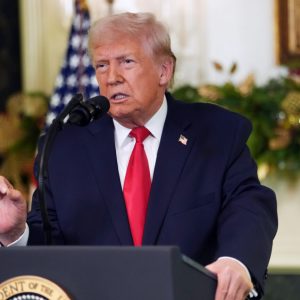A new political crisis has erupted in Washington after revelations that former President Donald Trump’s government-issued phone was seized under Operation Arctic Frost, a sweeping surveillance program launched during the Biden administration. The disclosure has ignited alarm across party lines, raising questions about executive privilege, surveillance overreach, and constitutional limits on federal power. Originally described as a narrow probe into 2020 election interference, Arctic Frost reportedly expanded into a broad data-gathering operation targeting individuals with ties to conservative political circles. According to Sen. Chuck Grassley (R-IA), the Justice Department “crossed ethical and constitutional lines,” collecting communications from elected officials, journalists, and even former administration members.
Leaked memos suggest that a classified subpoena signed by Judge James Boasberg authorized access to data from several Republican lawmakers — including Trump’s official presidential phone. Attorney General Pam Bondi confirmed that the Biden administration turned over Trump’s device to Special Counsel Jack Smith’s office in late 2023, calling the move “unconstitutional” and a breach of executive privilege. The Justice Department defended the seizure as compliant with “national security procedures” but declined further comment. Constitutional law experts warn that the situation ventures into uncharted legal territory, as no prior administration has accessed a predecessor’s communications in this manner, raising the stakes for both legal and political accountability.
The fallout has been immediate. Republicans, led by House Oversight Chair James Comer, have demanded hearings and subpoenas, while Democrats urge patience until classified details are reviewed. Meanwhile, Rep. Brandon Gill (R-TX) has introduced impeachment articles against Judge Boasberg for authorizing the subpoenas. Analysts warn that Arctic Frost could represent one of the most serious breaches of executive independence in modern U.S. history — deepening mistrust between political branches and fueling a constitutional showdown that may redefine the limits of federal surveillance.





